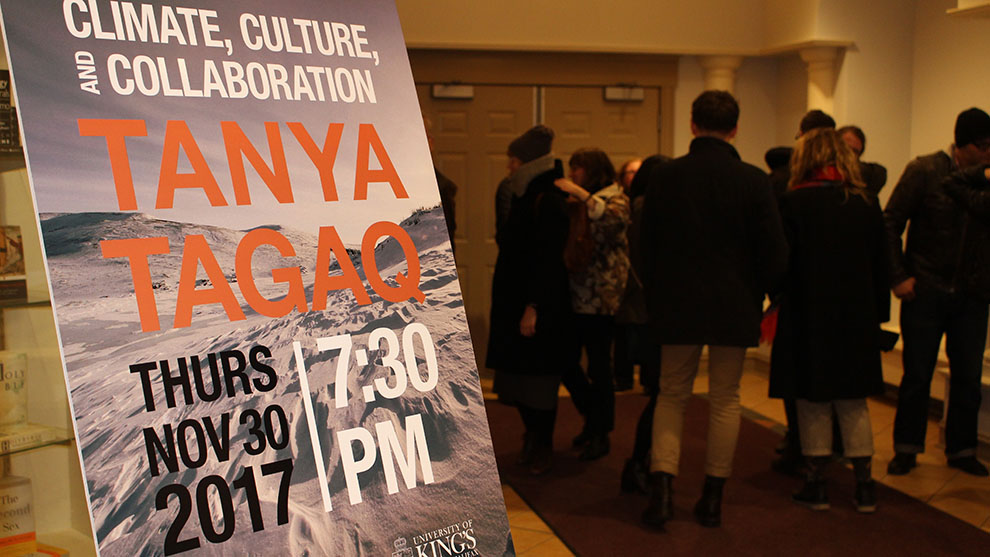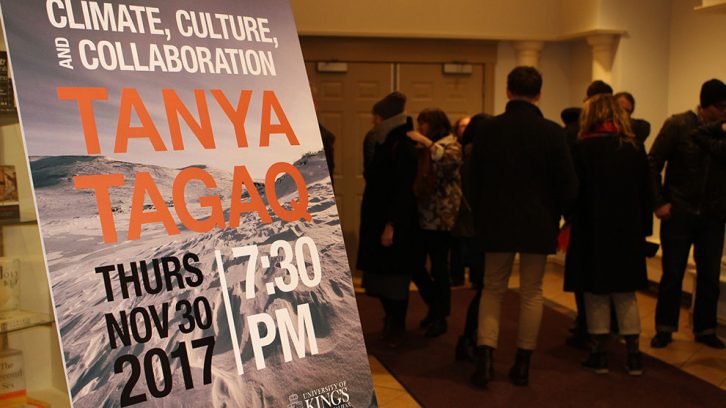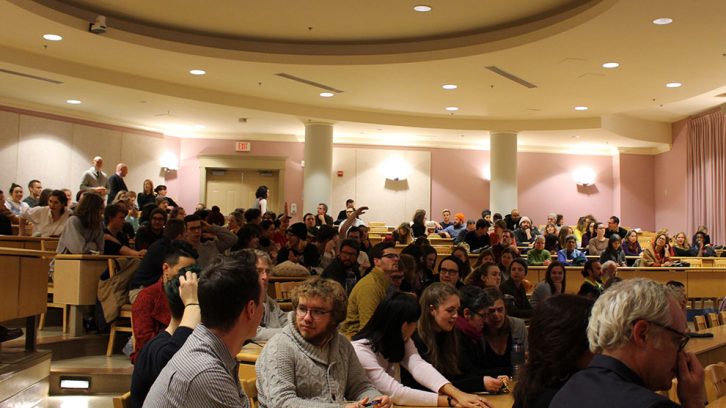Indigenous
Tanya Tagaq sings and speaks at 2017 Alex Fountain Memorial Lecture
Polar Music Prize winner says lost cultural connections lead to suicide

caption
Inuit throat singer Tanya Tagaq was the 2017 Alex Fountain Memorial lecturer
caption
Inuit throat singer Tanya Tagaq was the 2017 Alex Fountain Memorial lecturerTanya Tagaq asked for help for her Inuit community as it struggles to overcome the trauma of colonialism. Residential school programs and high suicide rates in the Arctic are deeply connected, she said Thursday night in Halifax.
“Beautiful smart, intelligent, fantastic, fabulous people are falling into the cracks due to social issues, and we desperately need your help,” she said.
Tagaq, an Inuit performer and Polaris Music Prize winner, was born in Iqaluktuuttiaq, also known as Cambridge Bay, Nunavut. She was this year’s student-chosen speaker at the Alex Fountain Memorial Lecture at the University of King’s College. The school’s largest lecture hall was full of students and community members.
A song to set the tone
Tagaq captured her audience’s attention with seven minutes of throat singing. She is known for her unique adaptations of the traditional Inuit practice. Inuit women usually sing in pairs, which she called “a friendly competition,” but she’s also a solo artist.
She said she wanted to sing before starting her lecture because it helps her settle her nerves.
Wordlessly, Tagaq’s voice evoked the sounds of the natural world, like Arctic winds and animals. By breathing circularly, Tagaq improvised through changes of volume, pace and emotion without pause.
Connecting to the Arctic
Tagaq showed the audience photos of her life and family. She described them with affection: caribou antlers on her parents’ house, a sled on bright white snow, and Tagaq and her daughter bundled up against a temperature of -55 C.
“We really live on the earth, with the earth. The weather is our boss,” said Tagaq of the Inuit people.
Connection is a word that Tagaq used several times. She said connection to the land and animals is of the utmost importance to Inuit culture, but the connection has been worn down by colonialism and its legacy.
“My area where I’m from in the central Arctic was very heavily affected by residential school programs, so I didn’t grow up hearing throat singing, or drum dancing or even a lot of Inuktitut. A lot of the language kind of dissolved into the idea of assimilation,” said Tagaq.
Tagaq said it’s no wonder why Indigenous people in Canada are upset and hurting.
Suicide in communities
The lecture series is named for Alex Fountain, a King’s student who died by suicide in 2009. Alex’s father, Fred, showed the audience a photo of Alex surrounded by friends on his first day as a student at King’s.
“We created this lecture series to remember our son and brother, Alex, and to give something back to the students and community,” Fountain said before Tagaq spoke.
Tagaq said she was touched to be able to bond with the Fountain family on that account.
“Suicide affects our communities in a very massive way,” Tagaq said of Inuit people.
Inuit youth are 11 times more likely to die by suicide than other Canadian youth populations, according to Health Canada. Almost a quarter of Inuit people reported suicidal thoughts, according to a 2012 study by Statistics Canada.

caption
King’s students and community members await Tanya Tagaq in Alumni Hall.Tagaq left an impression on Nicholas Fortier, a first-year King’s student. He said her message inspired him to take action on Indigenous and environmental issues.
“I really felt it spread to me. I felt that her passion was a seed that was blowing tonight. I think a lot of people picked up on it,” he said after the lecture.
Connecting to Halifax
Tagaq lived in Halifax in the 1990s.
“I went to NSCAD (University) back when I was just a baby throat singer and I love this community,” she said.
Tagaq said the sense of community in Halifax reminds her of the unified community she grew up in.
“I feel that the east coast of Canada most closely replicates our culture and our ideas and the down to earth kind of basics of how we deal with each other,” she said.

